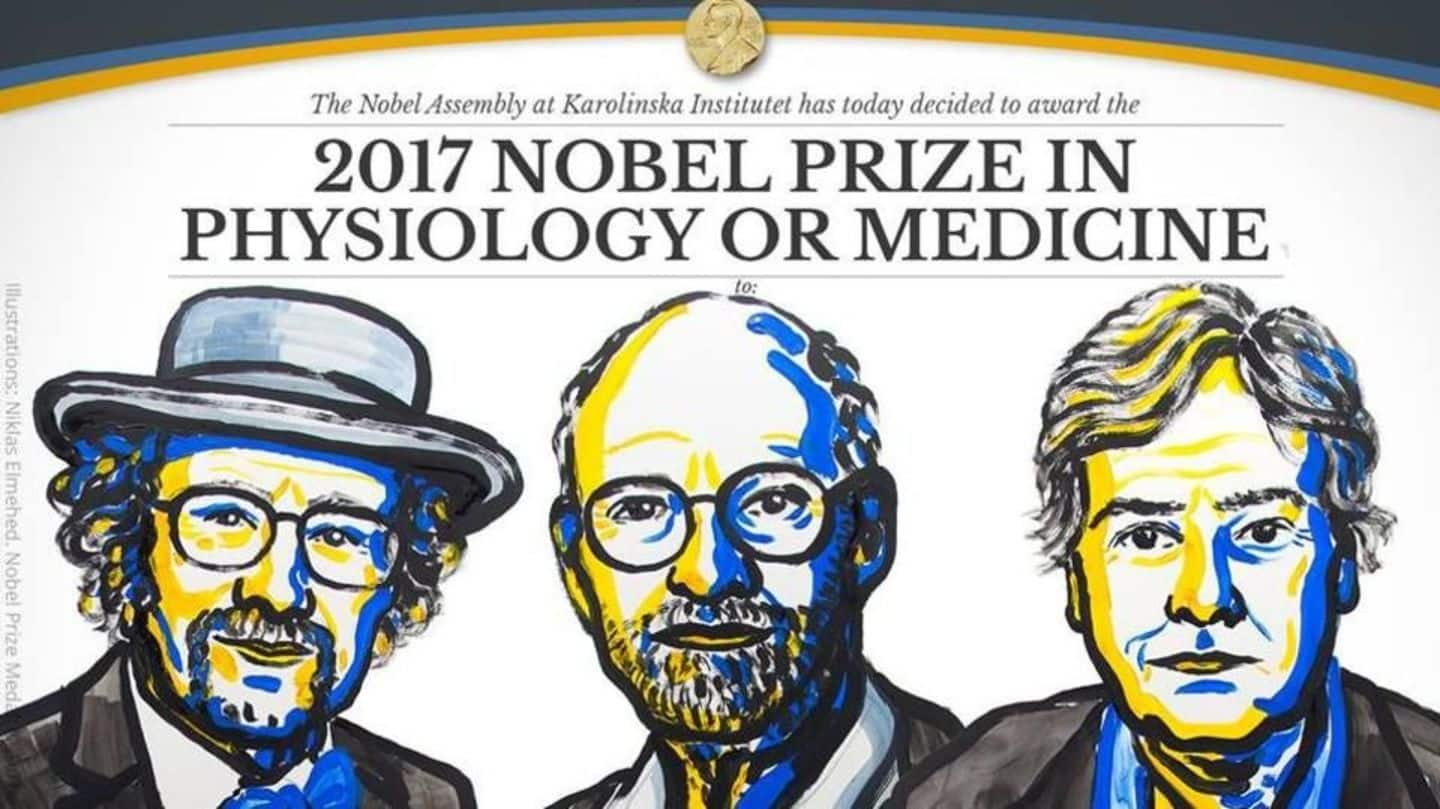
2017 Nobel Prize in Medicine awarded to three US scientists
What's the story
The 2017 Nobel Prize in Medicine has been awarded to three US scientists, Jeffrey C Hall, Michael Rosbash, and Michael W Young. They were selected from 361 nominations received by the Nobel Assembly at Karolinska Institutet in Sweden's Solna for their discoveries of the biological clock. They explained the mysteries of how life tracks time and changes according to the Sun's movement. Read more!
Quote
Winners will receive 9 million Swedish Krona
The Nobel committee stated, "The Nobel Assembly at Karolinska Institutet has today decided to award the 2017 Nobel Prize in Physiology or Medicine jointly to Jeffrey C. Hall, Michael Rosbash and Michael W. Young for their discoveries of molecular mechanisms controlling the circadian rhythm."
Twitter Post
The biological clock
Our biological clock helps to regulate sleep patterns, feeding behavior, hormone release and blood pressure #NobelPrize pic.twitter.com/NgL7761AFE
— The Nobel Prize (@NobelPrize) October 2, 2017
Biological Clock
Circadian rhythms, the 24-hour body clock
Circadian rhythms (biological clock) are the 24-hour cycles in the physiological processes of all living beings - from plants to humans. They influence several bodily functions like sleep, behavior, metabolism, hormone levels, and body temperature. A mismatch between the internal clock and the external surroundings -like experiencing jet lag or having insomnia- affects the wellbeing, leading to an increased risk of various diseases.
Quote
Nobel Assembly's citation for the prize
The Nobel Assembly's citation read the researchers "were able to peek inside our biological clock and elucidate its inner workings." It added their discoveries "explain how plants, animals, and humans adapt their biological rhythm so that it is synchronized with the Earth's revolutions."
Discoveries
Trio explains importance of keeping bodies in sync with Sun
The three scientists found that all living organisms on Earth regulate their body clock using the Sun, with the help of special technologies present inside them. They also explained how the biological clock could disrupt the way body works, for example, the metabolism. They also said that if the internal clock is thrown off balance, it can lead to huge problems.
Information
Researchers used fruit flies to identify "period gene"
The trio used fruit flies to identify the "period gene", which controls the organisms' normal daily biological rhythm. The scientists showed how the gene encodes a protein to accumulate in the cell during the night that again degrades during the day.
Background
The Nobel Prize in Physiology or Medicine
The Nobel Prize in Physiology or Medicine is administered by the Nobel Foundation and is rewarded once a year for path breaking discoveries in avenues of science and medicine. In 1895, Swedish chemist Alfred Nobel established five Nobel Prizes as a part of his will. The Nobel Assembly at Karolinska Institutet awards the Nobel Prize for medicine and has 50 voting members.